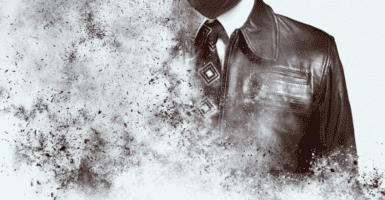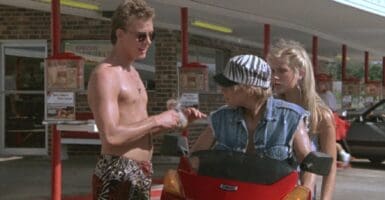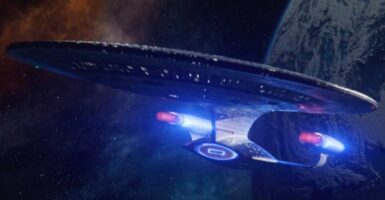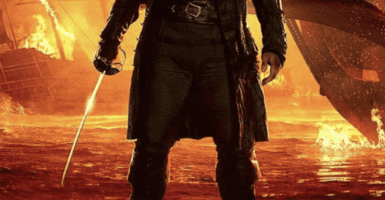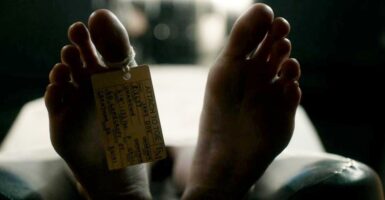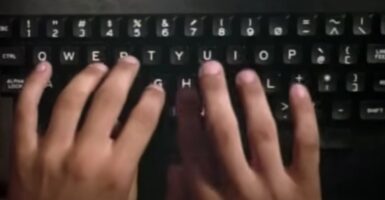Why Star Trek: Enterprise Failed And How It Nearly Worked
Enterprise’s producers never had any faith in Star Trek fans and so it wasn’t long before Star Trek fans lost faith in them.
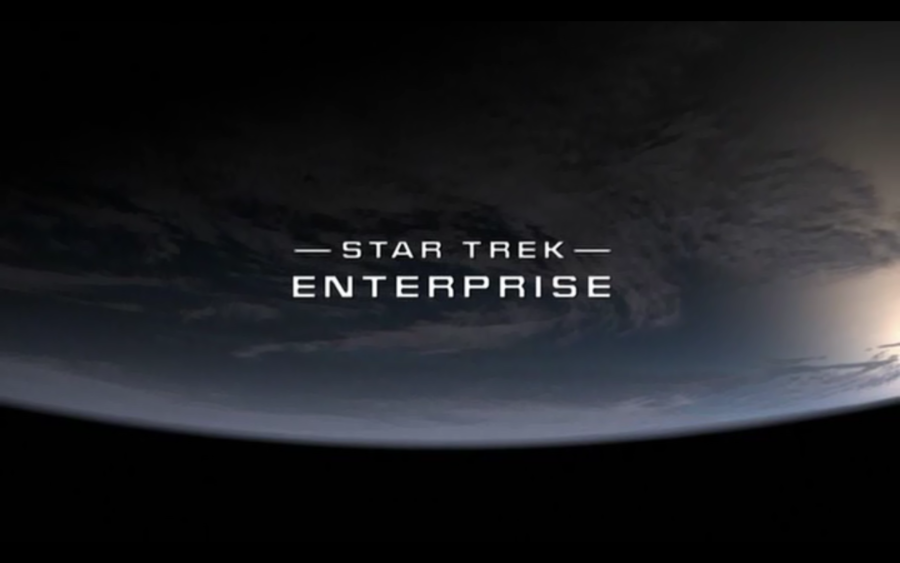
When Enterprise debuted on UPN in 2001 it was with a self-assured sense of success. Sure Star Trek was in a bit of a decline after all the misfires of Voyager, but Enterprise promised to remedy that by taking Gene Roddenberry’s vision in a fresh direction, rewinding the clock back to where the Federation began to rediscover the spirit of adventure and exploration that used to be the hallmarks of an aging franchise now drowning in overwrought techno-babble.
They were so certain this would work that, at least not until it became clear in the third season that it wouldn’t, Enterprise didn’t even bother to put the words “Star Trek” in its title. Their audience would find it, support it, and love it no matter what they called it.
They weren’t wrong. Had Enterprise turned out to be any of the things it was supposed to be, all of those things would have come true.
We know that because five years after its cancellation director JJ Abrams pulled off all the things Enterprise originally promised, and more, in his 2009 movie. The 2009 Star Trek was, basically, everything Enterprise was meant to become but didn’t.
What happened? Where did they go wrong? I’ve spent the last few months re-watching every episode of the show and, many years after its cancellation, I have answers. This is why Star Trek: Enterprise went wrong and how it so nearly didn’t.
Enterprise Gave Star Trek A Chance At A Fresh Start, A Way To Do Something Totally New
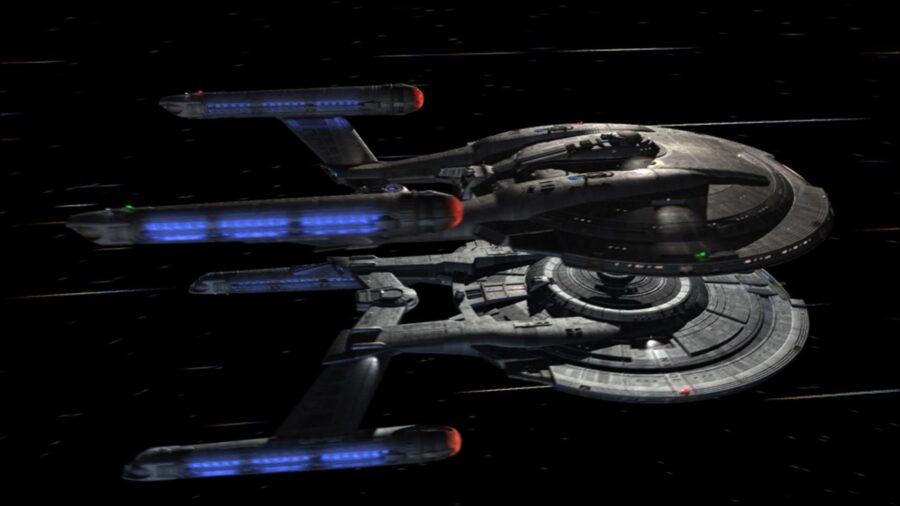
There’s no denying in the wake of the 2009 movie’s success that they had the right idea. Enterprise was supposed to take us back to the beginning of the Federation, before the time of Captain Kirk and Spock, to the first starship to bear that famous name, in a tumultuous galaxy humans were only beginning to understand.
More than that, Enterprise was supposed to be different in style and tone. They wanted a stripped-down approach, one that emphasized the strength of human determination instead of the excessive, over-reliance on technology previous Trek series’ had become lost in.
Unfortunately, instead of embracing that fresh premise Enterprise quickly became a television series at war with itself. The show’s pilot, “Broken Bow” immediately went to the, by then, played out time travel well and set in motion a series of events that would waste what should have been an interesting premise on a half-hearted temporal plot that went nowhere. Worse, by focusing on time travel as the show’s primary plot device, they ignored the time period they’d worked so hard to set it in, telling stories that could have been told in any place at any time.
Rather than exploring the possibilities of storytelling in the earliest, wild west days of human space exploration Enterprise all too often focused on the same meaningless technobabble that hamstrung Voyager, only it felt even more out of place here in a show that seemed so clearly designed not to be that kind of series at all.
Nothing embodied the show’s dual nature better than its much-maligned theme song. Like the series itself, the Enterprise opening credits were meant to signify something fresh, to embody the spirit of excitement and adventure they hoped to recapture.
Casting off the traditional, ship-flyby open used by all previous Star Trek incarnations, Enterprise created a visual history lesson that rocketed through the history of human exploration. Then it ruined that otherwise exciting visual feast by setting it to an awkward song about faith sung by a Rod Stewart knockoff, presumably because nothing says exploration and adventure like elevator rock.
Later when they realized everyone hated it, they tried to fix it by speeding up the tempo. Like setting a Michael Bolton song to a Bossanova beat cranked out of a Casio, this made something bad even worse.
Yet, even in amongst the mess the show’s producers made of it, the remnants of a few good ideas found a way to shine through… while Enterprise’s producers did everything they could to ignore them.
Some of those overlooked remnants were minor, the crew’s fear of using the transporter for instance was a nice little subplot that never really got properly explored. Some of them were major.
Captain Archer Is Bad At His Job, And That Could Have Been Interesting
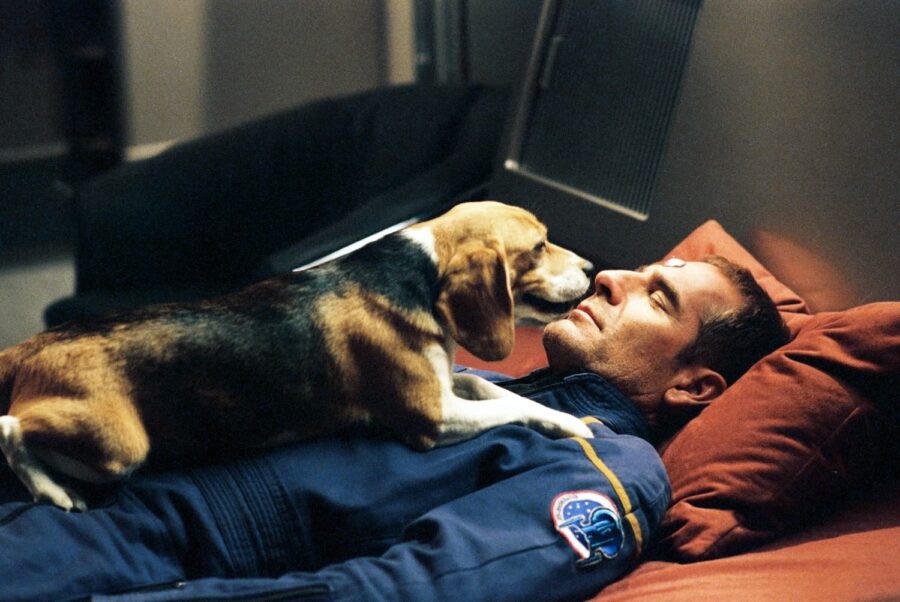
None of those missed opportunities were a bigger problem than the show’s captain; a man who started out as something interesting and then, thanks to the series’ insistence on ignoring anything that might be worth watching, turned into a bore. Archer was played by Scott Bakula, an actor best known for his “aw shucks” persona, and the character he played reflected that.
The thing about Captain Archer is that he’s not very good at his job. He’s the first Star Trek captain who seems to have absolutely no idea what he’s doing. It makes sense, he’s the first to be out there doing it. Starfleet had no way to know what kind of man they’d need sitting in their first Warp 5 ship’s captain’s chair. In Jonathan Archer, they picked wrong.
The Archer Enterprise introduced us to initially was careless and sloppy. He fraternizes with the crew and treats his mission like he’s on some sort of galactic pleasure cruise. He’s not a bad guy or even a bad officer, he’s just not very well suited to being a starship commander.
When things start to go wrong, he pouts. When things don’t go as planned, he complains that aliens are mean. As the missions get tougher he gets increasingly unhappy, miserable, and even morose. He starts to scowl, yells at his crew, and begins holding grudges, shooting first and asking questions later. Enterprise responds by glossing over his mistakes and telling us how great he is.
As the show’s writers became increasingly out of touch with the character, Archer turned into nothing more than a placeholder for an already determined future success.
His attitude didn’t matter, his mistakes didn’t really amount to anything, and his decisions were rendered irrelevant as Enterprise charted a course that forced him to go right when he should have gone left. They could have made an entire series out of watching Archer struggle with his failures but instead, they kept pushing the character into Captain Kirk’s cookie-cutter mold.
Archer isn’t Captain Kirk. He likes water polo. He spends his off-duty hours hugging a Beagle. He’s more comfortable talking about warp theory than negotiating with hostile aliens or making sweet love to green women. Enterprise ignored this and kept crafting Archer as something he never was and that Scott Bakula was never capable of playing.
Enterprise Made Vulcans Into Racists
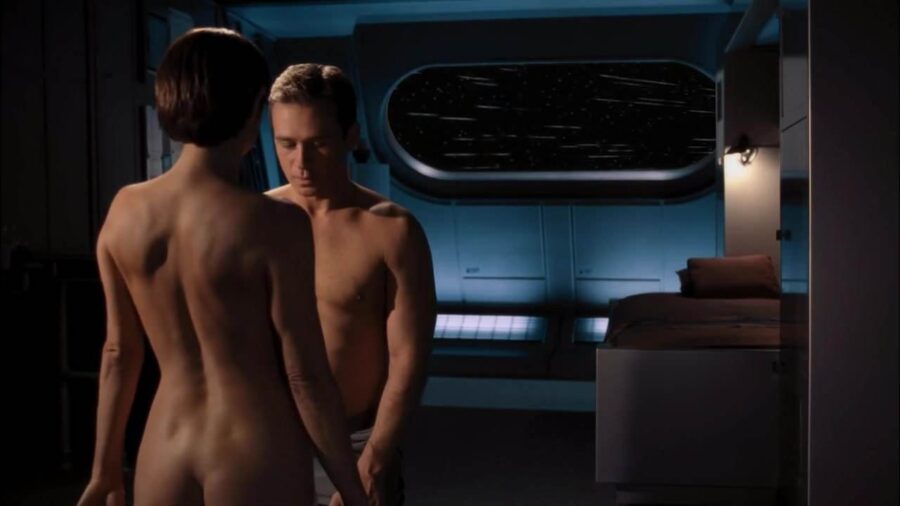
It wasn’t a bad idea to have a Vulcan on Enterprise. After all, this is a Star Trek set in the very earliest days of humanity’s journey out into the stars. Vulcans were the first aliens encountered by humanity and would, logically, be one of the few races they’d be well acquainted with during this period.
It was, however, a bad idea to make that Vulcan Archer’s first officer. Enterprise is supposed to be a show about humanity’s first leap out into the stars. Instead, it’s a show about humans reaching out into the stars whenever Archer’s on the bridge. When he’s not, it turns into a show about how a Vulcan named T’Pol told humans what to do on their first attempt to reach out and connect with other species.
That’s particularly ridiculous in light of Archer’s own resentment towards Vulcans. He sets out on his journey determined to have humanity start doing things on its own. And for his first act as Captain of Earth’s first warp 5 ship, he makes a Vulcan his first officer. Nothing about this makes any sense.
It makes even less sense when you consider what Enterprise made out of the Vulcans. Missing were the logical, peace-loving aliens we’ve grown to know and love as part of the Trek universe. In their place were a bunch of angry, pointy-eared, close-minded racists with an addiction to spray tan and a penchant for murder and threats.
In the show’s final season, there was a last-minute, half-hearted attempt to reconcile all of this and turn the Vulcans back into creatures best known for their inability to lie… but by then it was too little, too late.
Maybe they could have sold the idea of Vulcan fury better if they’d cast a better actress to play T’Pol, the aforementioned Enterprise first officer. Instead, they cast Jolene Blalock.
She’s not terrible and at times she’s even good, but it’s clear they mostly hired to be photographed in her underwear, something the show does often. Nothing wrong with seeing her in her underwear now and again if, outside of that, the show gave us other things to latch on to with her character. It never did and Blalock, while a decent enough actress, isn’t good enough to elevate bad material the way someone like Jeri Ryan did on Voyager.
I’d like to think that no one ever actually got around to telling her that Vulcans don’t show their emotions, but the truth is probably that she just couldn’t out-act the scripts they gave her.
Supporting Characters Carry The Show And Needed More Screen Time
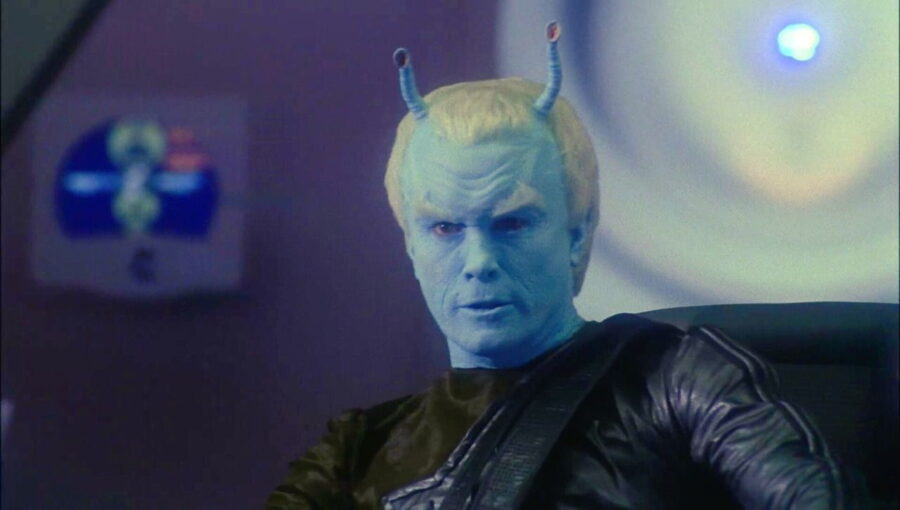
Luckily Blalock’s easily exposed character wasn’t indicative of the entire Enterprise crew.
Charles “Trip” Tucker III (played by Connor Trinneer) the catfish lovin’ Southern engineer is a delight, like Han Solo with a monkey wrench. Trip’s the kind of guy who gets away with a wink and a nod and woos women with his southern drawl. His excitement over the possibilities of their mission is infectious, his sense of humor a welcome relief from his Captain’s increasingly dour demeanor.
Phlox, the ship’s Denobulan doctor is equally successful. Performed with an effervescent verve for life by the great John Billingsly, he’s one of the most truly alien crew members ever to show up on a Trek series. His freakishly wide smile is the sort of subtle special effect that deserves Emmys. Dozens of episodes could have been written about his complex marital arrangements (Denobulans have three wives, who also have three husbands) alone, but of course, they weren’t.
Enterprise managed to score great guest stars too. Some of them it wasted. A guest appearance by Scott Bakula’s Quantum Leap companion Dean Stockwell was blown on a generic character unworthy of his talents. Others the show took advantage of, but maybe not enough.
Jeffrey Combs’ brilliant performance as the Andorian Commander Shran demanded he be used as a recurring character, but probably should have also prompted them to go a step further and find a way to make him part of the regular cast. There were rumors that might have actually been the plan if the show got another season, which it did not.
Still others they shoehorned into the show over and over again, against all common sense. Temporal Agent Crewman Daniels was the ultimate deus ex machina, a useless character shoved down our throats repeatedly, whenever the series’ needed an excuse to engage in yet another useless, gimmicky, time travel plot.
As it was with almost everything that mattered Enterprise never truly took advantage of its better characters. Trip remained generally relegated to the engine room and Phlox was kept locked away in his sickbay chasing the occasional escaped Tyberian bat.
Though none of the show’s better characters, like its phobic genius communications officer Hoshi, or the single-minded military man Malcolm, ever really got their due… their presence frequently resulted in genuine moments which succeeded in spite of the lukewarm episodes being written around them.
Trip and Malcolm’s drunken shuttle pod discussion about the perfection of T’Pol’s “bum” remains one of the series’ best. Trip’s heart-wrenching, weepy, hand-holding finale to a limp episode that resulted in the death of his daughter was like an emotional punch in the gut that lingered long after the credits were over.
A few perfect scenes with the great characters it wasted was the best Enterprise gave us.
Star Trek: Enterprise Became The Show It Was Meant To Be Too Late
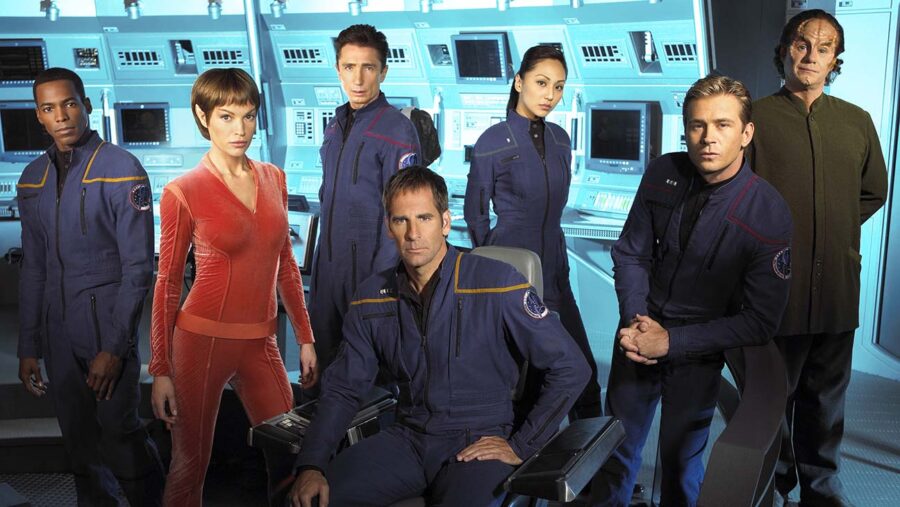
With the clock running down and cancellation imminent, in the latter half of its fourth season, Enterprise tried to become the show it should have been all along. A sudden interest in exploring the universe it was supposed to be discovering resulted in a flurry of episodes involving the alien races Archer and his crew were meant to befriend in order to pave the way to the Federation we knew from Kirk’s Trek-era.
The stories they should have been telling for the past four seasons were condensed into a few short episodes and shoved out the door at warp speed, a last-ditch effort to win departed fans back.
It was too late. Nothing they did would matter. After four seasons of low ratings Enterprise, by then retitled Star Trek: Enterprise, was canceled in 2005.
Enterprise was supposed to be a grand television series about exploration, about the spirit of adventure, about the triumph of the human spirit. Instead, it kept getting bogged down in gimmicks, gimmicks that it never needed, and gimmicks that its audience had long since grown weary of.
The show’s producers, Rick Berman and Brannon Braga, were locked into a formula that told them that they had to have a reason to fire phasers every episode or their audience would stop being interested.
Enterprise’s producers never had any faith in Star Trek fans and so it wasn’t long before Star Trek fans lost faith in them. In the process Hollywood lost faith in the entire franchise, sending longtime steward Rick Berman to the unemployment line and Star Trek into the high-octane, style over substance hands of JJ Abrams. Thanks to Enterprise, Rodenberry’s vision will never be the same again.
Why The Cast Thinks Star Trek: Enterprise Failed
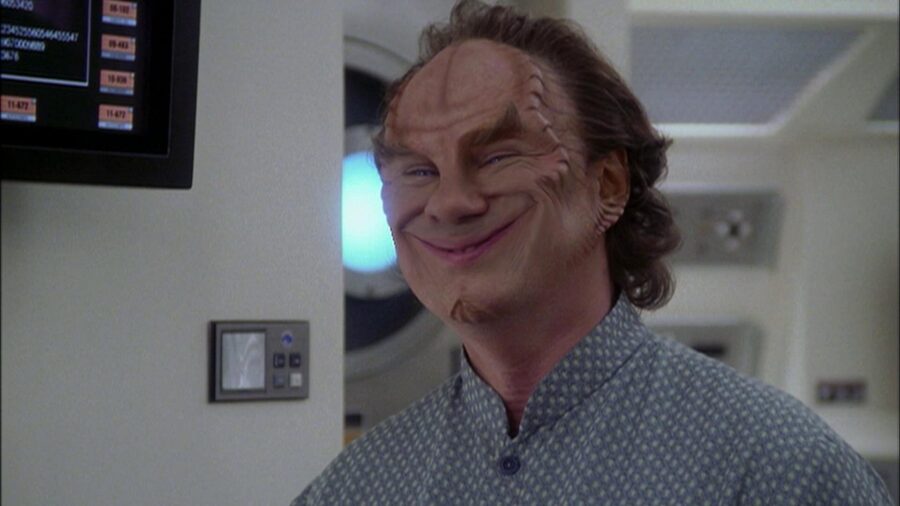
You’ve heard what I think, but what about the people who were there on the set? Enterprise stars John Billingsley, Connor Trinneer and Dominic Keating were at Galaxy Con where they discussed what went wrong with Star Trek: Enterprise. Here’s what John Billingsley had to say…
“We came on after so many years of Star Trek, and in a number of those years, double-dipping. Deep Space Nine actually overlapped with Voyager, for instance. I think by the time we aired there was fatigue, understandable fatigue. The show did really at least need a year off. I always felt badly for [co-creators/executive producers] Rick [Berman] and Brannon [Braga] that they weren’t given that time…The bible for the show just needed a little more work. I think the notions were strong and I think with the character development they had some clarity.
But in terms of an arc for the first season, I think the Suliban wasn’t quite as thought through as it maybe needed to be. I think there was a little bit more work needed on what the tonal balance was between the darkness of we are the first fucking ship and we don’t know what the fuck we are doing and the nature of what Star Trek is supposed to be, the optimistic spirit… It is a hard tone to strike for what they were trying to do.”
Billingsley goes on to complain about Paramount and UPN’s lack of support for Star Trek: Enterprise saying…
“The studio itself also needed to kind of grapple with what they wanted to achieve. I remember there was an early episode where a crew member is transported and they come back. And in the first draft… it was pretty cool because this guy comes back and his head is where his ass is supposed to be and [flails around] ‘what the fuck!’ and we are afraid of the transporter. By the time it emerges and we are shooting it, the guy comes back from the transporter accident and he has got a little twig sticking out of his forehead. And that to me early on crystalized where I think the timidity of the network actually fucked us. To me there was another level of scariness that the show wanted to move towards, and I felt that the powers that be said, “But, but, but.”


